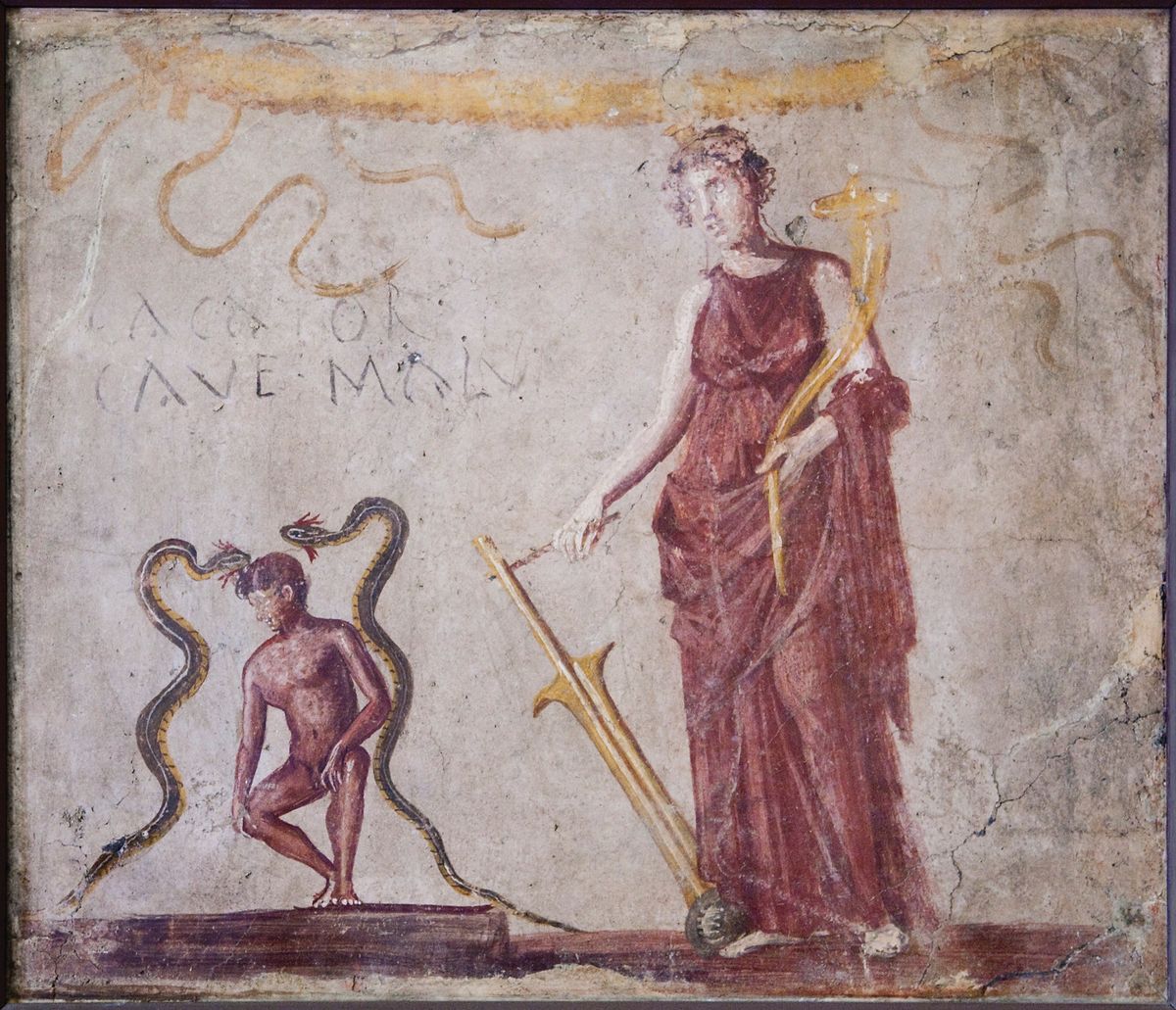Alexandra Sofroniew’s Household Gods is a splendid publication on several counts. It is elegantly presented and the illustrations (of objects for the most part in the J. Paul Getty Museum) have been chosen with wit and sensitivity. The real strengths, however, lie in the sparkling text, which reflects the latest research in Greek and Roman religion, a topic that has witnessed substantial change over the past few decades. It used to be thought, for example, that religious activity in ancient Greece was mostly at the public level, and much was written about the religion of the polis, overlooking what may have gone on in the hearts and minds of private citizens. More recent studies (for example, in Ancient Athens: Religion and Politics During the Peloponnesian War) have shown how seriously individual citizens took their relationship with the divine. Sofroniew is very much in tune with this line of thinking, noting that “Shared between members of a household and on a fundamental level seeking favourable outcomes for the family, private devotion is an expression of a desire for connection and reassurance, and a search for meaning in life in the face of the unknown and the inexplicable.”
These are the closing words in the book, but Sofroniew has packed a vast amount of information into the preceding 130 or so pages, covering religious practice over 1,000 years, from archaic Greece to the nascent age of Christianity, showing how the Roman pantheon was derived from its Greek and Etruscan equivalents, and how domestic shrines live on today in India and Japan. (I well remember, years ago, seeing an exhibition in Oxford on Indian village art and being struck by the way in which every facet of life had its spiritual guardians, and how similar life must have been in classical Greece.)
Sofroniew’s discussion of Roman domestic shrines (lararia) is especially rich. We have enough information from both literary sources, and from houses overwhelmed by the eruption of Vesuvius in AD79, to understand something of the central role played by lararia, and to witness the variety of objects that might be venerated therein: usually a central genius flanked by lares (youths on tiptoe holding a drinking horn and a drinking bowl), then an assortment of other statuettes of, among others, Jupiter, Apollo, Minerva, Isis, Hercules, Mercury or Asclepius.
Asclepius was the god of medicine, introduced from Greece to Rome in the early third century BC. The chapter “Health Matters: Kitchens and Bathrooms” is characteristically full of fresh insights. Sofroniew notes the presence of a lararium near the latrines in a house in central Pompeii decorated with a fresco of Fortune and a man emptying his bowels. An inscription above him reads “cacator cave malum”—“crapper beware of evil”. Sofroniew notes how infections could spread easily given the conditions of even the best managed Roman latrines (notably the practice of sharing a sponge for ablutions). Practical factors such as the need for running water and good ventilation meant that kitchens (that often contained their own lararia) and latrines were often situated close to each other in the Roman house. “This was useful for plumbing and for keeping strong smells from other areas of the home, as well as for disposing of kitchen scraps directly into the drains,” Sofroniew writes. “But from the standpoint of health it was a disaster.”
The book is full of such insights and is to be thoroughly recommended both to those who think they know a thing or two about the classical world as well as to those who know nothing but require a reliable introduction to its religion, its archaeology and its art.
• Michael Vickers is professor emeritus of archaeology at the University of Oxford and an emeritus fellow of Jesus College. He was curator of Greek and Roman antiquities at the Ashmolean Museum between 1971 and 2010, and co-director of the British-Georgian excavations of a Greek trading post at Pichvnari between 1998 and 2010. His latest book is Aristophanes and Alcibiades: Echoes of Contemporary History in Athenian Comedy (De Gruyter, 2015)
Household Gods: Private Devotion in Ancient Greece and Rome
Alexandra Sofroniew
Getty Publications, 160pp, £16.99,
$25 (hb)


